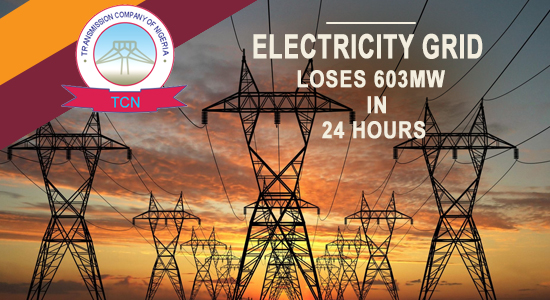Electricity generation in the country dropped to 3,511 megawatts (mw) on Monday, following a loss of 603mw, 24 hours after a peak capacity of 4,114mw was reached.
According to the Transmission Company of Nigeria (TCN), the highest peak generation in July was reached last Friday when a peak of 4,223mw was generated but in the same day, the peak generation dropped to 3,089mw.
The daily report of the Nigerian System Operator (NSO) of TCN revealed that country also witnessed the lowest generation of 2,723mw on Sunday, which was 400mw less than the lowest generation for Saturday, when a peak generation of 3,923mw was reached.
The federal government had rolled out N701 billion as payment plan for the Nigerian Bulk Electricity Trading Plc (NBET) to facilitate payment for gas by the Generation Companies (GenCos) to improve power generation.
However, the situation of power generation has not gone beyond 4,000mw in the last three months with an average of 2,000mw of electricity capacity often left unutilised across the many GenCos on daily basis.
Power generation report for last Tuesday showed that 2,413mw of electricity was not utilised in the power industry largely due to gas constraints, DisCos’ feeder issues and transmission deficiency.
Seven GenCos lost 1,264mw capacity because they had no gas to operate their 11 turbines; 35mw was lost to transmission constraint at Ibom Power, affecting one turbine.
However, Permanent Secretary at the Federal Ministry of Power, Works and Housing, Engr. Louis Edozien yesterday said payments for power generated in January 2017 has been paid, that of February payment approved, and that the process for March and April is on-going so the GenCos can get more gas.
Load rejection due to the loss of DisCos’ feeders resulted in frequency management issues at the transmission end. This constraint which has been pronounced for several months deprived Nigerians of 1,114mw of electricity. Eight power plants were affected as their 13 turbines were forced to ramp down on generation.


















